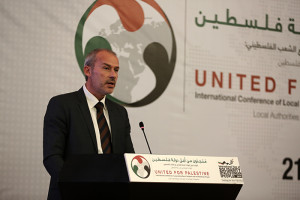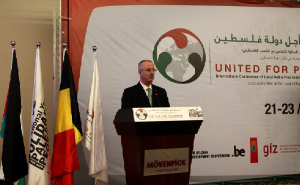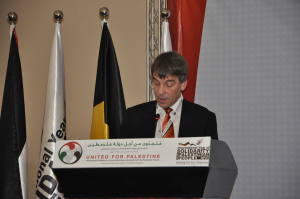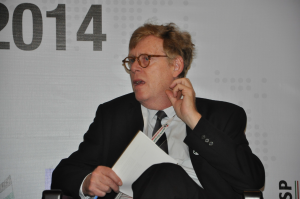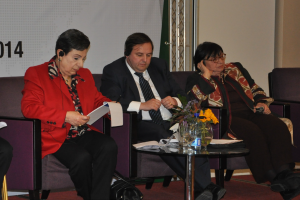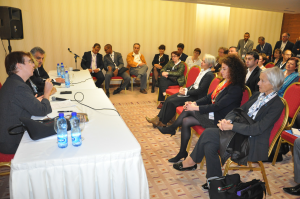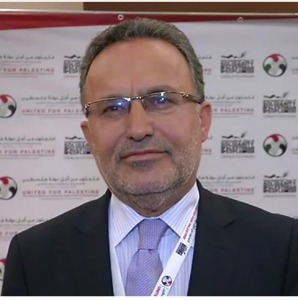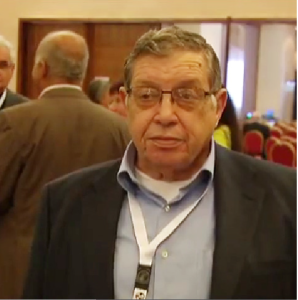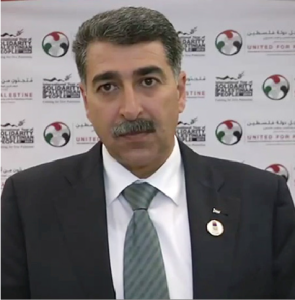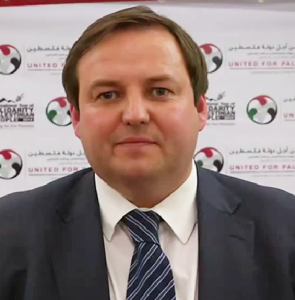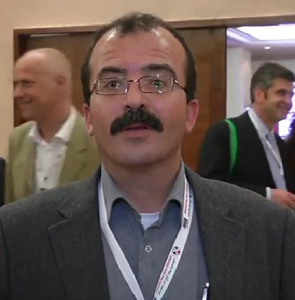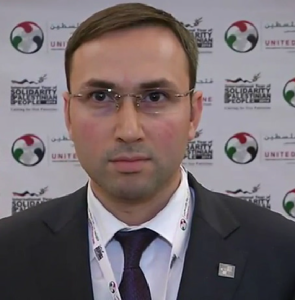International Conference of Local Authorities
Local authorities at the heart of the state of Palestine
In a rare gathering, described by some as the first of its kind, hundreds of internationals, Mayors of global cities, Ministers of state, municipal members, local authority representatives, and international political figures came together in one place: Palestine. Representatives of almost 300 Palestinian municipalities and 150 international municipalities in Europe, Asia, Latin America and Africa were present under the same roof at the Movenpick Hotel in Ramallah in November 2014.
This unique two day event came under the framework of the 2014 UN International Year of Solidarity with the Palestinian People (IYSPP). The IYSPP events and activities committee, in collaboration with the Ministry of Local Government (MoLG), the Association of Palestinian Local Authorities (APLA), and through the support of some of their key partners such as Belgium Technical Cooperation (BTC), Germany’s GIZ, Danida, Italian Development Cooperation, and French Development Agency (AFD), organised this international conference entitled, “Local Authorities at the Heart of the State of Palestine”.
The opening ceremony
In his inaugural speech, Prime Minister Rami Hamdallah, on behalf of President Mahmoud Abbas, said; “This conference comes at a time when our public and private institutions are playing a great role in laying the foundations of the State of Palestine”.
Belgian Consul General in Jerusalem, Bruno Jans, said; “In Palestine, more than anywhere else, local authorities symbolise the oldest level of local territorial development as they appear to be key stakeholders and the driving force behind the development process”.
Head of the national committee for the commemoration of the International Year of Solidarity with the Palestinian People (IYSPP), Dr Mazen Ghunaim, thanked delegations for braving the challenges of travelling to attend the conference.
Objectives
The role played by Palestinian local government units (LGUs) in the State-building and development processes, considering the enormous challenges faced by Palestine and its specific situation, cannot be underestimated. The conference’s main objective is to bring together Palestinian (West Bank, East Jerusalem and Gaza) and representatives of foreign organisations in order to promote links between them, engender new ideas, and create new joint-initiatives. This was clearly stated by Olivier Donnet, one of the key organisers and sponsors of the conference, when he strongly affirmed that; “A strong Palestinian state should be supported by strong local governments … this is the key issue … it is like the second leg of the state”.
Other benefits would include open debate, greater understanding and new strategies to help identify improvements, develop networks and new partnerships amongst attendees. At the same time, the conference hoped to form new collaborations, cooperation and links between international LGUs and Palestinian LGUs, and hopefully allow participants to share advice about the opportunities that can come from lobbying, advocacy and defending Palestinian interests on the international stage. “We’ve signed a cooperation protocol with Hebron municipality, Palestinian municipalities are doing a great job, so we want to work with them on joint projects”, Deputy Mayor of Istanbul, Ismail Hakku proudly stated. A similar declaration was made by the Mayor of Ramallah, Eng. Mussa Hadid: “Municipalities have developed and signed new twinning agreements which will enhance the bilateral relations, affecting the local economy and overall level of their services”. Eng. Ghassan Shakaa, Mayor of Nablus stated that he is a strong believer in the political impact of twinning between cities as his city is twinned with at least ten cities around the world.
Conference speakers stressed the importance of Palestinian LGUs understanding the active role that they must play in the process of creating the Palestinian State. They must be proactive, not spending their time waiting for orders from central government. As Dr. Albrecht Schröter, Mayor of Jena (a Germany city), who described the conference as an historical event, mentioned that; “We need new ideas about the role of municipalities, as places for the development of democracy, bringing people together”.
Recommendations
The Conference affirmed the following principles:
Supporting the people, institutions, and local authorities of Palestine in their just struggle for building their state and institutions on their land and enabling the Palestinian people to exercise their right to sovereignty over their land and resources in the State of Palestine.
Formation of the ‘Global network for the support of Palestinian local authorities’ to mobilise political, economic, social, and cultural support to local authorities in Palestine and enhance and develop joint cooperation between world municipalities with Palestinian local authorities. Strengthen solidarity and cooperation between various grassroots organisations. Form a special permanent committee in Palestine to unify and support all solidarity activities with the Palestinian people in order to intensify their effect and achieve their aims.
Form a permanent secretariat for the new network created between Palestinians and international local authorities, municipalities, and municipal associations.
Hold an international conference of local authorities for network members on a regular basis.
The conference agreed to support all twinning agreements between Palestinian municipalities and international cities, in coordination with their municipalities and local authorities.
Olivier Donnet, one of the key organisers and sponsors of the conference, strongly affirmed that;
“A strong Palestinian state should be supported by strong local government … this is the key issue … it is like the second leg of the state”.
Mr Ismail Hakku, Deputy Mayor of Istanbul Metropolitan Municipality Network:
“We came as a delegation of 29 people, including four Mayors and high-level municipality officials. In Turkey, municipalities are strong with world-class projects, providing great services. We are here to give advice but also to listen to what the situation is here. “We’ve signed a cooperation protocol with Hebron municipality. Palestinian municipalities are doing a great job, so we want to work with them on joint projects. We have previous experience of this – we send our experts to other countries and host experts from other countries, to ensure information and experience sharing. This ensures that such relationships become even stronger with countries where we have historical and cultural relations, as well as geographical proximity.
“These activities will hopefully develop further, with municipalities playing a more important role in the independence of Palestine. The conference in this regard is a great opportunity to take the voice of Palestinians to the rest of the world, as this is an urgent matter for humanity”.
Ulrich Nitschke, head of the governance programme at GIZ, stated; “We are convinced that the role of the municipalities in the state building process is crucial for sustainable development; even in such difficult conditions under illegal occupation, Palestine’s political leadership should be held accountable for all that they promise to their people. Where the people of Palestine expect them to deliver a good level of service, we also expect people to pay for these services through their taxes”. He continued by saying that sustainable development should definitely be part of local economic development.
Dr Mazen Ghunaim, head of the IYSPP national commemorative committee, said that this conference puts Palestine under the spotlight and shows growing levels of solidarity with Palestine. This was a rare opportunity to experience open and frank exchange between international and local municipalities, to discuss how to enhance the quality of services currently offered, as well as the potential economic development aspect.
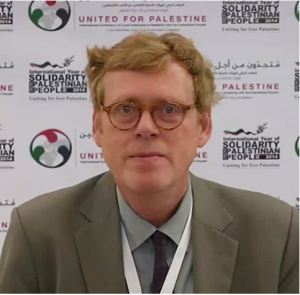 Olivier Donnet, one of the key organisers and sponsors of the conference, strongly affirmed that;
Olivier Donnet, one of the key organisers and sponsors of the conference, strongly affirmed that;
“A strong Palestinian state should be supported by strong local government … this is the key issue … it is like the second leg of the state”.
Mr Ismail Hakku, Deputy Mayor of Istanbul Metropolitan Municipality Network:
“We came as a delegation of 29 people, including four Mayors and high-level municipality officials. In Turkey, municipalities are strong with world-class projects, providing great services. We are here to give advice but also to listen to what the situation is here. “We’ve signed a cooperation protocol with Hebron municipality. Palestinian municipalities are doing a great job, so we want to work with them on joint projects. We have previous experience of this – we send our experts to other countries and host experts from other countries, to ensure information and experience sharing. This ensures that such relationships become even stronger with countries where we have historical and cultural relations, as well as geographical proximity.
“These activities will hopefully develop further, with municipalities playing a more important role in the independence of Palestine. The conference in this regard is a great opportunity to take the voice of Palestinians to the rest of the world, as this is an urgent matter for humanity”.
 Ulrich Nitschke, head of the governance programme at GIZ, stated; “We are convinced that the role of the municipalities in the state building process is crucial for sustainable development; even in such difficult conditions under illegal occupation, Palestine’s political leadership should be held accountable for all that they promise to their people. Where the people of Palestine expect them to deliver a good level of service, we also expect people to pay for these services through their taxes”. He continued by saying that sustainable development should definitely be part of local economic development.
Ulrich Nitschke, head of the governance programme at GIZ, stated; “We are convinced that the role of the municipalities in the state building process is crucial for sustainable development; even in such difficult conditions under illegal occupation, Palestine’s political leadership should be held accountable for all that they promise to their people. Where the people of Palestine expect them to deliver a good level of service, we also expect people to pay for these services through their taxes”. He continued by saying that sustainable development should definitely be part of local economic development.
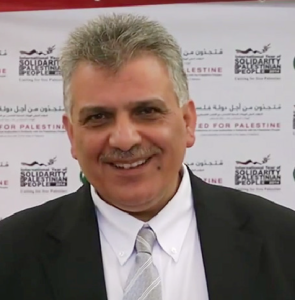 Dr Mazen Ghunaim, head of the IYSPP national commemorative committee, said that this conference puts Palestine under the spotlight and shows growing levels of solidarity with Palestine. This was a rare opportunity to experience open and frank exchange between international and local municipalities, to discuss how to enhance the quality of services currently offered, as well as the potential economic development aspect.
Dr Mazen Ghunaim, head of the IYSPP national commemorative committee, said that this conference puts Palestine under the spotlight and shows growing levels of solidarity with Palestine. This was a rare opportunity to experience open and frank exchange between international and local municipalities, to discuss how to enhance the quality of services currently offered, as well as the potential economic development aspect.
Eng. Ghassan Shakaa, Mayor of Nablus, is a strong believer in the political impact of the twinning between cities. Nablus city is twinned with at least ten cities around the world.
Eng. Moussa Abu Hadid, Mayor of Ramallah City, said;
“This important conference sends an important message to Palestinians: We are with you”. He continued by saying that municipalities have developed and signed new twinning agreements which will enhance bilateral relations, affecting the local economy and overall level of their services.
Padraig Mac Lochlainn, Minister and Teachta Dála (Member of Ireland’s National Parliament):
He said that this conference has been very important as it brings people from all over the world together to build partnerships with Palestinians. He thought it vitally important to develop public housing, education and health systems. One of the key challenges is to partner with Palestinian businesses to develop wealth, create jobs, and develop markets with other countries.
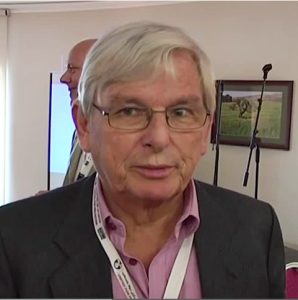 Peter Downey, Chairman of Bethlehem & Bath Links, sees this conference as a great business opportunity for creating links between municipalities, and shows how local economic development can be increased. His charity links businesses in his area of the UK (Bath and North East Somerset) with the city of Bethlehem.
Peter Downey, Chairman of Bethlehem & Bath Links, sees this conference as a great business opportunity for creating links between municipalities, and shows how local economic development can be increased. His charity links businesses in his area of the UK (Bath and North East Somerset) with the city of Bethlehem.
Mr Ziad Taweel, Director of Al Bireh Municipality, said that this conference comes at a crucial moment where the Palestinian
local authorities are forbidden by the Israeli authorities from investing in Area C, as mentioned by a World Bank study that estimated a loss of $3.7 billion of wasted
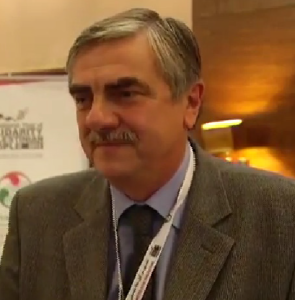 Jacques Bourgoin, Forrmer Mayor of Gennevilliers, France, has had a long twinning relationship with the City of Al Bireh for over 13 years. He believes that this conference is a political sign of support to the Palestinian people and feels that it is important to come to Palestine to see how things are on the ground, as well as being important in allowing us to cooperate with other cities. Most importantly, one sees the importance of the human relationships that can be created between the citizens of both cities.
Jacques Bourgoin, Forrmer Mayor of Gennevilliers, France, has had a long twinning relationship with the City of Al Bireh for over 13 years. He believes that this conference is a political sign of support to the Palestinian people and feels that it is important to come to Palestine to see how things are on the ground, as well as being important in allowing us to cooperate with other cities. Most importantly, one sees the importance of the human relationships that can be created between the citizens of both cities.
Dr Ihsan Ikizer, Coordinator General of United Cities and Local Governments for Middle East and West Asia, expressed his happiness at working with Palestinian local authorities and the opportunities for future cooperation.
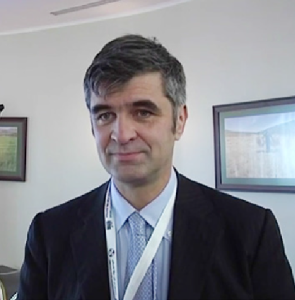 Miguel de Clerck, director of Echos Communication (HQ in Belgium but also in Morocco), said that there is often a lack of collaboration between entrepreneurs and municipalities because they are not used to working together. In order to avoid this, the main objectives should be agreed upon by the mayor and the private sector organisation. Second, the objectives should be determined by the available potential/skills/talent in the area. Third, both sides of the working party should speak on the same level, both bringing their ‘added value’ together in the best way they can, in a complementary way.
Miguel de Clerck, director of Echos Communication (HQ in Belgium but also in Morocco), said that there is often a lack of collaboration between entrepreneurs and municipalities because they are not used to working together. In order to avoid this, the main objectives should be agreed upon by the mayor and the private sector organisation. Second, the objectives should be determined by the available potential/skills/talent in the area. Third, both sides of the working party should speak on the same level, both bringing their ‘added value’ together in the best way they can, in a complementary way.
 Lana Abu Hijleh, Director General of CHF Global Communities and moderator of two main sessions at the conference, said; “The main message coming from this conference is that local authorities are important in the building of the future State of Palestine, as they have historically been engaged in directly serving their communities, and acting as catalyst for local development, with a participatory leadership-style engaging both civil society and private sector”.
Lana Abu Hijleh, Director General of CHF Global Communities and moderator of two main sessions at the conference, said; “The main message coming from this conference is that local authorities are important in the building of the future State of Palestine, as they have historically been engaged in directly serving their communities, and acting as catalyst for local development, with a participatory leadership-style engaging both civil society and private sector”.
 Chantal De Bourvie, General Councilor of Valles De Marne in France, Vice President of a French local authority that works with its peers in Palestine. “The importance of this conference lies in having the time to see how we can help create viable projects together. We already work with three cities in Palestine: Qalqilya, Tulkarem and Jenin. We have expertise in water and sewage issues, particularly at the research level, and have specific skills in both diagnosing and resolving water and drainage problems in these three cities”.
Chantal De Bourvie, General Councilor of Valles De Marne in France, Vice President of a French local authority that works with its peers in Palestine. “The importance of this conference lies in having the time to see how we can help create viable projects together. We already work with three cities in Palestine: Qalqilya, Tulkarem and Jenin. We have expertise in water and sewage issues, particularly at the research level, and have specific skills in both diagnosing and resolving water and drainage problems in these three cities”.
 Anne-Marie Ginger, Deputy Mayor of Arceil, France: “Our city has been working with the City of Hebron for more than 30 years. I spoke during the conference about the importance of democracy: where elected members take the opinion of their population into account, work in total transparency, and without corruption”.
Anne-Marie Ginger, Deputy Mayor of Arceil, France: “Our city has been working with the City of Hebron for more than 30 years. I spoke during the conference about the importance of democracy: where elected members take the opinion of their population into account, work in total transparency, and without corruption”.
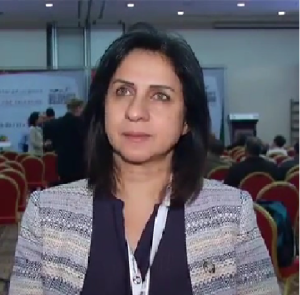 Mrs Vera Baboun, Mayor of Bethlehem: “The importance of this conference is that it highlights the necessity of having twinning agreements between cities, both at the developmental and political level, and it’s up to each municipality to benefit from the resultant cooperation”.
Mrs Vera Baboun, Mayor of Bethlehem: “The importance of this conference is that it highlights the necessity of having twinning agreements between cities, both at the developmental and political level, and it’s up to each municipality to benefit from the resultant cooperation”.
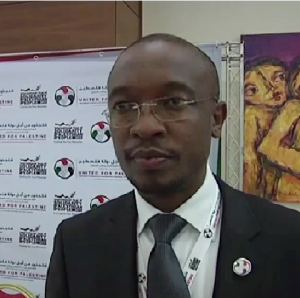 Parks Tau, the Mayor of Johannesburg in South Africa and Member of the ANC, signed a twinning agreement with the Municipality of Ramallah:
Parks Tau, the Mayor of Johannesburg in South Africa and Member of the ANC, signed a twinning agreement with the Municipality of Ramallah:
“We believe that it is important that we build our local authorities in such a way that they are able to serve their people better. Authorities should involve people in the delivery of municipal services”.
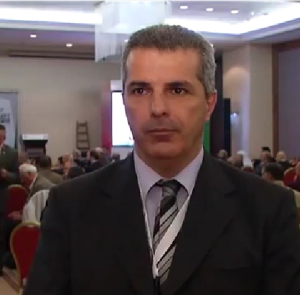 Hazem Kawassmi, Director of Municipal Development Fund:
Hazem Kawassmi, Director of Municipal Development Fund:
“This is an important conference that includes a large number of delegations from South Africa, Germany, France, Turkey, Jordan and many others, as it focuses on advancing local development in Palestine, as municipalities play a critical role in its democratic transformation”.
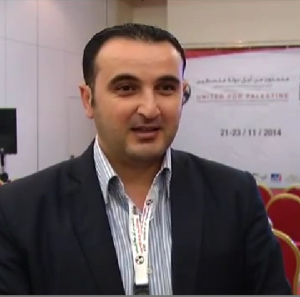 Ihsan Nassr, Head of Koufor Nimeh Village Council (the youngest head of a local authority in Palestine). He said that it was; “A very important conference! It gives us the chance as municipal councils of cities and villages to meet with our peers from other countries. I met few Mayors from Turkey, Germany, Denmark and France”.
Ihsan Nassr, Head of Koufor Nimeh Village Council (the youngest head of a local authority in Palestine). He said that it was; “A very important conference! It gives us the chance as municipal councils of cities and villages to meet with our peers from other countries. I met few Mayors from Turkey, Germany, Denmark and France”.
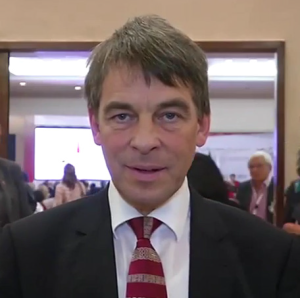 Dr. Albrecht Schröter, Mayor of Jena (a Germany city), described it as an historical event and mentioned that; “We need new ideas about the role of municipalities, as places for the development of democracy, bringing people together”.
Dr. Albrecht Schröter, Mayor of Jena (a Germany city), described it as an historical event and mentioned that; “We need new ideas about the role of municipalities, as places for the development of democracy, bringing people together”.










